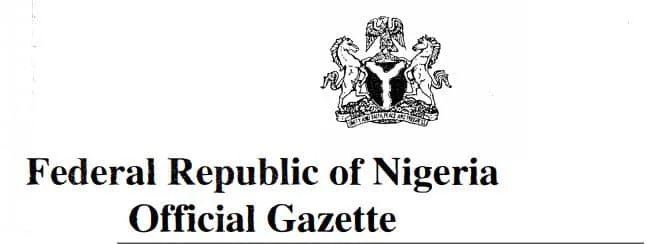1999 Constitution of Federal Republic of Nigeria
Enacted in 1999 at the commencement of the 4th republic when Nigeria returned to democracy, the constitution states the duties and obligations of government and citizens as well as fundamental human rights of every Nigerian citizen. It has since been amended twice. The right to life, dignity, freedom of association et al are captured in the document.
Click here to download a copy of the constitution and perform a civic duty of reading and understanding the constitution.

Freedom of Information Act 2011

After about 12 years of advocacy, President Goodluck Jonathan signed the Freedom of Information Act into law on May 27th 2011. The Act amongst other provisions oblige government institutions to make public records and information available on request and proactively.
Click here to download a copy of the FOI Act. Send an FOI request to public institutions. See a sample of an FOI request here to guide you.
Oyo State Child Rights Law 2006
In October, 2006, the then Governor of Oyo State, Otunba Adebayo Alao-Akala signed the Child Rights Bill into Law. Section 26 of this law explicitly prohibits Female Genital Mutilation with a fine of N20,000 or imprisonment for a term not exceeding 2 years or to both.
Click here to download a copy of the law.
Africa Youth Charter
In July 2006, African Union Head of States and Governments meeting in Banjul, Gambia, endorsed the African Youth Charter (AYC) as a political and legal document which serves as the strategic to give direction for youth empowerment and development at continental, regional and national levels. Nigeria, one of 28 members states of the African Union, signed and ratified the instrument.
Africa Youth Charter consists of 31 articles grouped into two parts. The charter defines youth as any person between the ages of 15 and 35 years. It makes provision for freedom of movement, freedom of expression, freedom of association for every African youth.
Access a copy of the African Youth Charter here.

National Youth Policy
Realizing the importance and inevitability of youths in the country’s economy, the National Youth Policy document in 2009 was reviewed to capture the intent of the country to develop her youth and provide necessary support. The document is a framework that describes the roles of agencies concerned with youth development in the nation especially the Ministry of Youth and Sports.
Click here to download a copy of National Youth Policy, 2009. See here efforts to support the ongoing review of the document.
Electoral Act 2010
The Electoral Act became law in 2010. It has over the years witnessed lots of amendment. The most recent amendment was in 2017. The electoral act dictates the timing for every election year, processes, order, franchise age, and most recently addresses the adoption of technology for the electoral process.
Click here to see a copy of the document.

